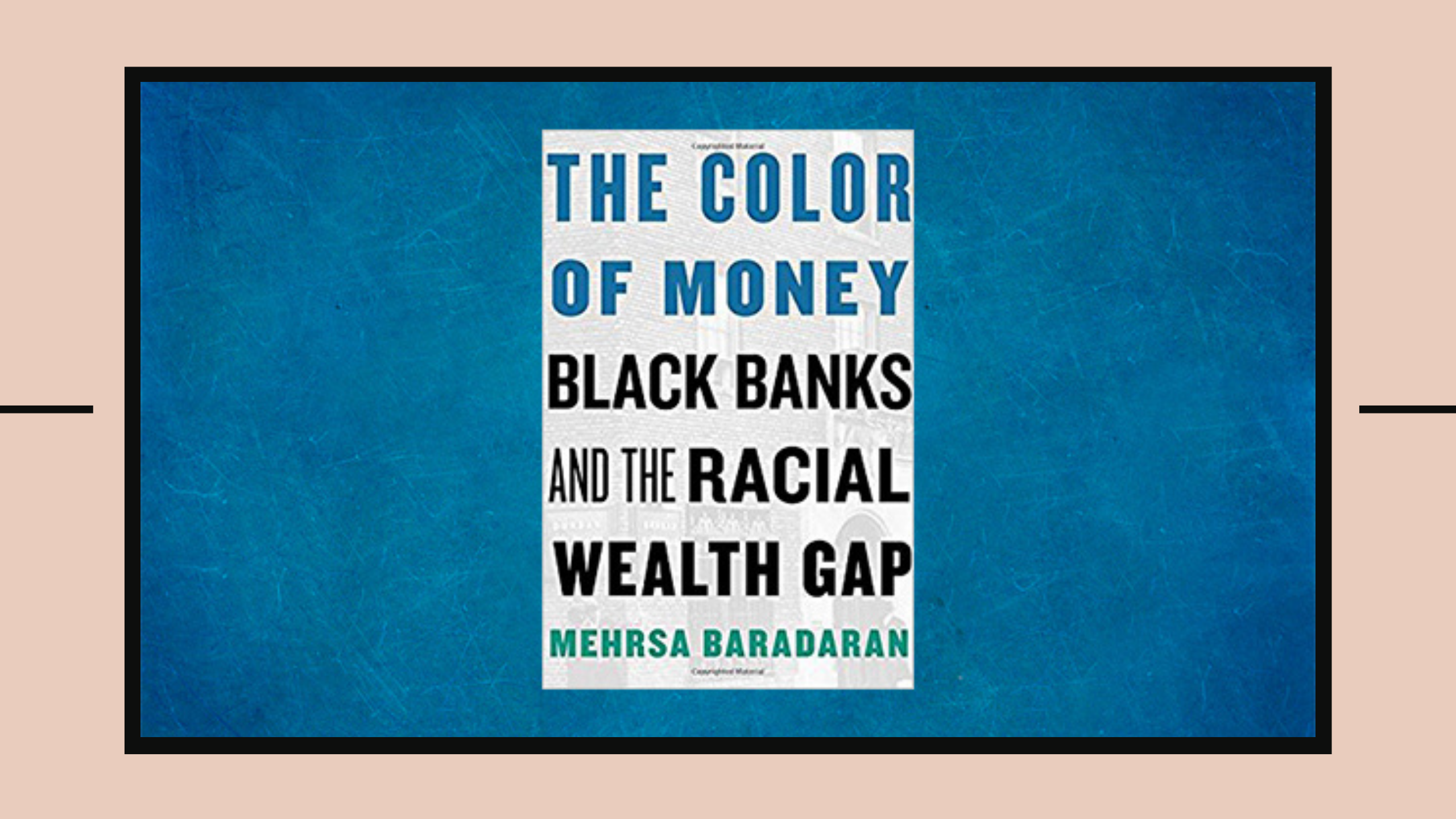
Reparations & The Color of Money
- August 15, 2020
- by
- Lisa Mei
Recently, I started reading The Color of Money by Merhsa Baradaran. I work at a wealth management firm, where I hear a lot of conversations from my skinfolk about the lack of representation and/or opportunities for advancement/growth. I also hear a lot of calls to support black banks. Hearing a lot of conversation about the widening wealth gap, coupled with my own curiosity as to whether black wealth can actually sustain itself outside of white capital, I figured this would be a good read to educate myself on all of this. I have not finished the book, but I have to say, so far it is really interesting! A piece of opening trivia that really blew my mind and fascinated me, was that Bank of America started out as an immigrant owned bank that was created to help Italian immigrants who faced discrimination upon arrival and entry into the economy. Now it is one of the leading financial institutions. Mind blown! Why hasn’t a black bank been able to do that?? This really intrigues me. Keep reading if you want to know what I have gotten from the book so far!
Much to my surprise, the one thing the book is showing me is the obvious need/justification for Reparations. Baradaran is not explicitly calling for Reparations, but the case she lays out makes it easy to see why they are owed. First and foremost, black people were considered property. Meaning white men could literally gain wealth by owning them. They were able to be mortgaged and traded. This gave slave holders the ability to acquire land, goods, and services. They were quite literally liquid/cash currency. When you couple that with the fact that the work the slaves were doing generated even more income/cashflow, I think you can see how white Southern plantation owners were quickly amassing wealth and empires- literally off the back of slaves, particularly black slaves. I think it is important to note that there were not only black slaves in the beginning. White Europeans were slaves too. The difference is they were indentured servants- they were tied to the land/work until they paid off their debt of immigrating to the new land and having food and housing provided for them. Some black people started off this way too, but the change came when both black and white (and perhaps even Native American) indentured servants started to push back. At the time, the British government was pressuring the colonists to do right by the settlers, so eventually the colonists started bringing in slaves from Africa (to circumvent that pressure at morality). Once the British government started seeing the profits- first from tobacco, then the new crop of choice, cotton- they began to start relying heavily on the African slaves, and the Transatlantic Slave Trade got underway in full effect. But I digress.
I honestly feel like this fact alone- that slave owners were able to amass fortunes off the labor of black slaves- is reason enough to owe Reparations. I think black people should receive back pay for that labor. But when you move forward a couple hundred years, to where The Color of Money opens, and think about how the federal government set up a savings bank for the Freedmen, and white bankers used that money (the money black freedmen were saving to acquire land) to finance the railroad and real estate industry (not to mention settle their own personal debt), I think it becomes undoubtedly clear that Reparations are owed. The ownership of their existence was capital, their labor generated more capital, then their wages were stolen to create and bolster more capital. And that is not even mentioning that over the course of a hundred + more years they were locked out of capital! (gerrymandering, redlining, denied bank loans, low wages, employment discrimination, etc.)
I know we’re talking about money here, but the fact that these former slaves were working so hard to acquire land, (so that they could fully function in the capacity of a full proper citizen (like the bankers were preaching to them to do), had their means to acquire that land stolen from them, and then still had to deal with the daily acts of intimidation and violence (that started in slavery, continued throughout Reconstruction, and into and throughout Jim Crow), is enough to see that no amount of money could ever cover the psychological toll black people have payed since the beginning. But the access, resources, and opportunities it affords is certainly a good start to begin to correct the damage done. (In my humble opinion)
So many black people could have purchased land and began to create their own wealth if their money were not stolen. They may not have generated as much wealth as the plantation owners, or even tobacco and cotton merchants, but they could have at least started working toward the eventual attainment of wealth. Instead they were chronically in debt because they had to depend on sheisty white people (some, not all) who continually found reasons to tax them. Black people were saving money to buy land and white people used it to finance industries they were locking them out of! This is textbook/true definition of racism! It makes me so upset. When I think about what could have come out of black people being able to own land, I find it downright offensive. Many black people exist in a state of pathology, suffering from chronic poverty, psychological damage and under education. They are relegated to live in ghettos or community housing that perpetuates poverty. The education that they have is subpar, and they are exposed to little more than drugs, violence, and entertainment. And this is not a result of laziness, lack of ability, etc. It is a result of chronic poverty, diminishing rights, and lack of exposure, all of which are functions of racism, and the looting of and from black people.
But yeah, Beauties. That is the picture The Color of Money painted for me so far. Cannot wait to finish digging into it. Check it out, if you too, want to get informed on how we found ourselves here in the valley of this wealth gap. And if we can truly get out of it!
Until Next Time, Beautiful! Keep It Smart, Girl!
xoxo
–LM






